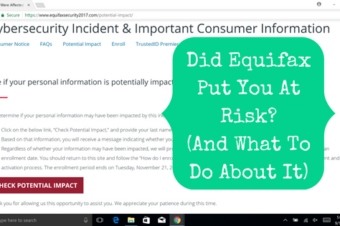
Thanks to COVID-19 and the containment efforts, our country and most of the world are in a financial crisis. In times like these, you need to be even more alert to guard your financial life. You don’t only have to guard your income and spending, but your records and good standing. Financial crises elicit scammers and fraudulent activity just as the scent of blood draws sharks. One of your best preventive tools in this fight is your credit report.
What Is A Credit Report?
Your credit report is a historical record of how you have borrowed and repaid debts. It contains personal identifying information such as your Social Security number, birth date, current and former addresses, and employers. The information regarding debt that it reports include:
- Address and telephone number for the creditor
- Basic account information (the date it was opened and the type of account it is)
- If the account is open or closed
- The monthly payment
- The credit limit
- The latest activity on the account
- The current balance
- Any amounts past due
- Account status; whether current, 30 days past due, 60 days past due, or 90 days past due
- Collection activity; such as whether it has gone to collections or involves a repossession or charge off
Your credit report also contains certain public record information, such as court judgments (and sometimes even just lawsuits) against you, garnishments, tax liens, foreclosures, and bankruptcies. If you have submitted any statements to the credit bureaus regarding your report or credit history and any unresolved disputes, they should be included as well.
How Do I Get A Free Credit Report?
There are multiple credit reporting agencies and each one creates their own version of your credit report. The three major reporting agencies, or credit bureaus, are Equifax, TransUnion, and Experian. Most people or organizations that access credit reports do so through one of those three. As such, when requesting a copy of your credit report you want to make sure you get all three versions from the three different agencies.
Federal law dictates that every person is entitled to a free copy of their credit report once a year. They even created a website through which to access them, Annualcreditreport.com. There are a number of websites that try to imitate the official site but then charge you for your report. If you don’t want to pay for copies of your credit report you must use the site linked above. When you use that site, you only have to make your request once. It will send the information to all three credit bureaus so that you will receive all three reports.
Because of the increase in fraudulent activity brought on by the COVID-19 crisis, Equifax, Experian, and TransUnion have banded together to offer free weekly credit reports until April 2021. You no longer have to wait a year or pay. You can access them through the exact same website. On the site, you will notice a gray bar at the top of the site explaining the offer with a big red button to request your free credit reports.
What Should I Do With My Credit Report?
Once you get copies of your credit report, it’s time to review them. First, double-check that all of the personal information is accurate, including Social Security number, employers, and addresses. If you find any inaccuracies, it could be fraud or it could be an accidental mix-up with another person. I taught a financial class at my church and one of the members was amazed to find that there was another man in the same city with his exact name. All of that man’s debts appeared on my class member’s credit report.
After checking the personal information, go through and make sure you are familiar with every single account listed. You may find fraudulent activity or you may just find an old account that you forgot about that needs to be paid off or closed. If you do find anything that appears to be incorrect anywhere on the report, contact both the credit reporting company that issued the report and the business that issued the account. Here is a list of the most common errors found on a credit report.
Your credit report can also be used to gather information about your debts in order to come up with a plan to pay them off. I recommend using Dave Ramsey’s debt snowball method to eliminate debt. Paying off debt is not only a wise move, but it also helps you to build your credit and raise your credit score.
Where Is My Credit Score?
Speaking of that, you might notice something that is not on your credit report: your credit score. That is because different companies and agencies use different formulas to calculate your credit score. The information in your credit report is what is used to calculate the score, but everyone does it differently and arrives at a different credit score. The law requires that you are provided with a free copy of your credit report but not your credit score. Because of this, you will not find a credit score on your free credit report and it is not an error.


